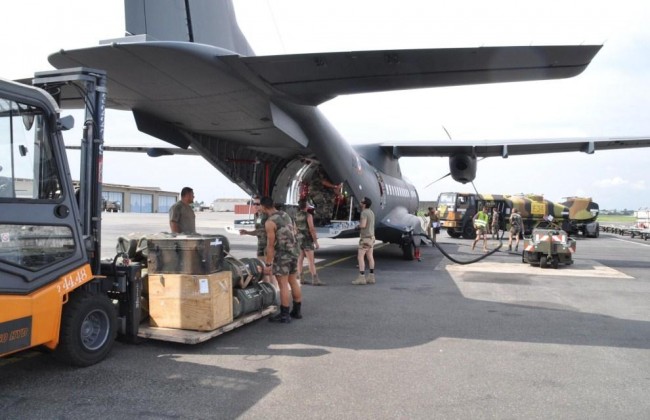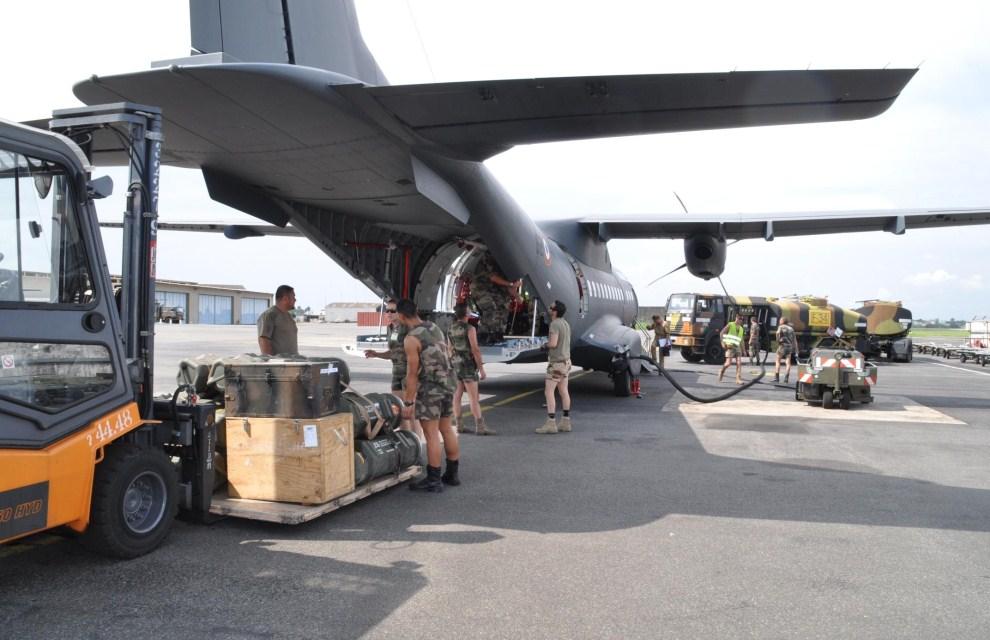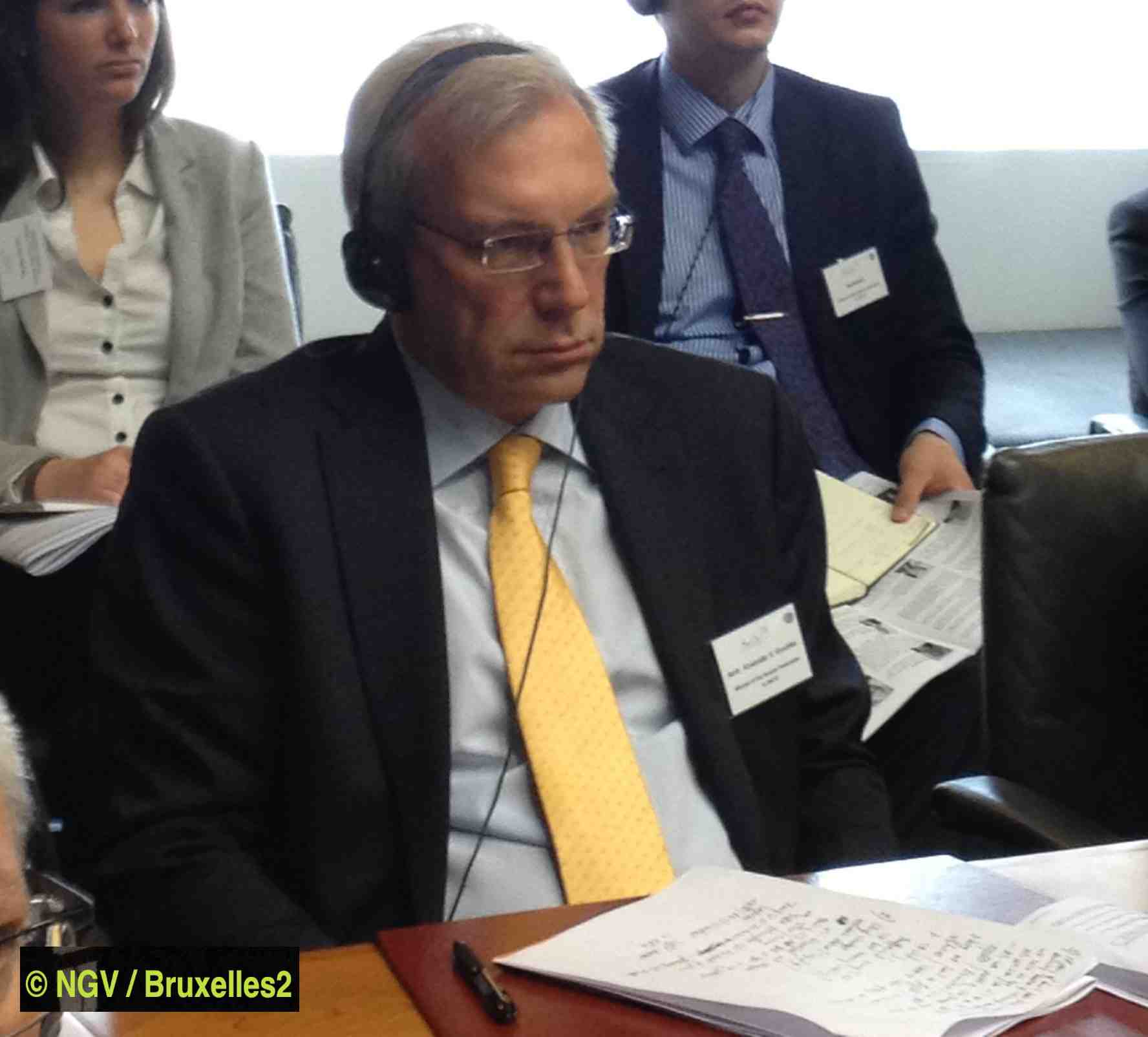Financing of the Sangaris operation. Inflation or “real” idea (Maj2)

(BRUXELLES2) One might wonder what François Hollande had smoked before his interview with our colleagues from F24, RFi and TV5 Europe (read about the Club: A European fund for peacekeeping operations. Announcing that the operation in the Central African Republic (CAR) would not cost the French budget a penny is indeed a good conjurer's trick. Adding that Europe would partly finance the operation is alchemy.
Perplexity and irony
B2 asked right and left. And everyone - even the most eminent connoisseurs of the dossier - remains perplexed. The long, emphatic silences are often more eloquent than the answers. Some try to explain: "the President must have confused". "He could have been wrong" ventures a second. “Ask the Elysée – retorts a third, ironic – they may have an idea”.
The European answer: uh... no!
On the European side, the response has been worked out. But the no seems clear. « The (European Commission) released, this week, 50 million euros from the Peace Facility for Africa intended to finance the international operation (...), that is to say the MISCA. For now, that's the situation." explained the spokesperson for the High Representative, answering a question from B2 on Thursday. The Central African Republic will be “ to the order of the Council of Ministers of Foreign Affairs, (even) of the European Council ". " Of course, member states can (at this time) raise the debate on this issue”.
Existing systems at European level
To get to the bottom of it, we can quickly revisit the four or five mechanisms that exist at European level to finance, more or less, a “crisis management” operation.
- 1° The CFSP budget - Community budget - it is only used to finance "civilian" operations (for example a police or observation mission) = Out!
- 2° The Athena mechanism - non-Community budget based on government contributions - which is used to finance military operations, provided that they are undertaken under the European flag and with the approval of all (unanimously). And yet this mechanism only finances a (small) part of the Opex cost (staff, means of communication, medical evacuations, etc.) = Out!
- 3° The Africa Peace Facility - financed from the European Development Fund, extra-Community budget - which is used to finance "African" peacekeeping operations. Are or have been thus financed AMISOM in Somalia, AFISMA in Mali, MICOPAX in the Central African Republic and the future MINUSMA in the same country = Out! (unless the African Union donates funding to France. Difficult and a little twisted!)
- 4 ° Theinstrument of stability - from the community budget - which makes it possible to finance, alongside a crisis management operation, certain equipment or security projects = Out!
- 5 ° Thehumanitarian aid - from the community budget - allows to finance the sending of food, medicine, doctors and emergency aid, but normally civilian. The use of military means being planned only as a "last resort". = Out! (Except to finance one or two aid planes - like a field hospital - on the spot. Difficult).
- 6° The "Start-up funds" - provided for by the Treaty of Lisbon - makes it possible to finance preparatory activities for (crisis management) missions which are not charged to the Union budget (for example military missions). A fund, made up of contributions from Member States But this provision is not yet in place nor has it even received the smallest beginning of execution or proposal, for 4 years!
Unless I'm mistaken, that's all. None of these mechanisms therefore makes it possible to finance a military operation like that carried out by the French in the Central African Republic, even if it is carried out on behalf of the international community. This was confirmed by a senior European diplomat on Friday morning. “Let's be clear: the European budget finances European operations, decided by the EU. This is not the case in the Central African Republic”. And to add: In fact, we weren't even asked. » Unless you invent another... device.
A new device?
This is the idea launched by François Hollande of a European fund for peacekeeping missions (and detailed during his trip to Sao Paulo in Brazil). A very interesting idea. Indeed, the European Union lacks a mechanism complementary to those that already exist, in order to share the burden between those who can and want to act and those who cannot or do not want to act. It is, in fact, difficult to demand permanent unanimity of action and will. And solidarity mechanisms and following the best practices must be found (read: For a European security or crisis management fund?). But to set up a new system, it will take a little time... and a lot of political will. Difficult to say that it will be effective, retroactively, to finance the operation Sangaris. Because we have to work on its financing, its legal basis, its terms...
Bypassing the British veto
Assuming that this fund can be set up, it would still be necessary to find a way to manage this financing. And, therefore, to take the bull by the horns and settle the British "veto". Because London has made the CSDP a tool to be destroyed. The various documents in our possession (detailed on the Club) prove it. And his veto begins to become permanent and disabling.
To circumvent it, there will be no other way than to use force and cunning! François Hollande (helped by Angela Merkel) and a few others (Belgium, Poland, Italy, Luxembourg, for example) has a card up his sleeve. A trump card. It's called the "permanent structured cooperation" (CSP or PESCO in English): provided for in the Lisbon Treaty, never implemented for a series of "good reasons".
Simple in its triggering
To set up a CSP, it is "sufficient" to send a notification to the other members of the Council and to the High Representative. This cooperation - inspired by enhanced cooperation but different in its operation - does not require a minimum number of Member States. It is set up by qualified majority. This majority could be met, it seems. Of course, some criteria must be met. But these criteria can above all be seen as political commitments. This cooperation makes it possible both to have structuring projects in terms of capabilities and rapid reaction forces, if we undertake to develop them. For the budget, and the funding, it's another story. But we can set up ad hoc financing...
Yes you can!
François Hollande "can" do it. If he really cares about Defense Europe, he "must" do it. He will anger London, that's for sure. But, at some point, we will have to go through this test of strength. Otherwise all the other positions will have been only alchemist jokes...
Read also:


In matters of CFSP, like EMU, like… the English veto has in fact become permanent and handicapping. But this veto only exists because States like France refused – notably in the Treaty of Lisbon – to abolish it and still refuse today to do so by revising the Treaties. That said, there are political limits to UK blocking: the UK can block some projects for some time – but not all projects all the time. JGG